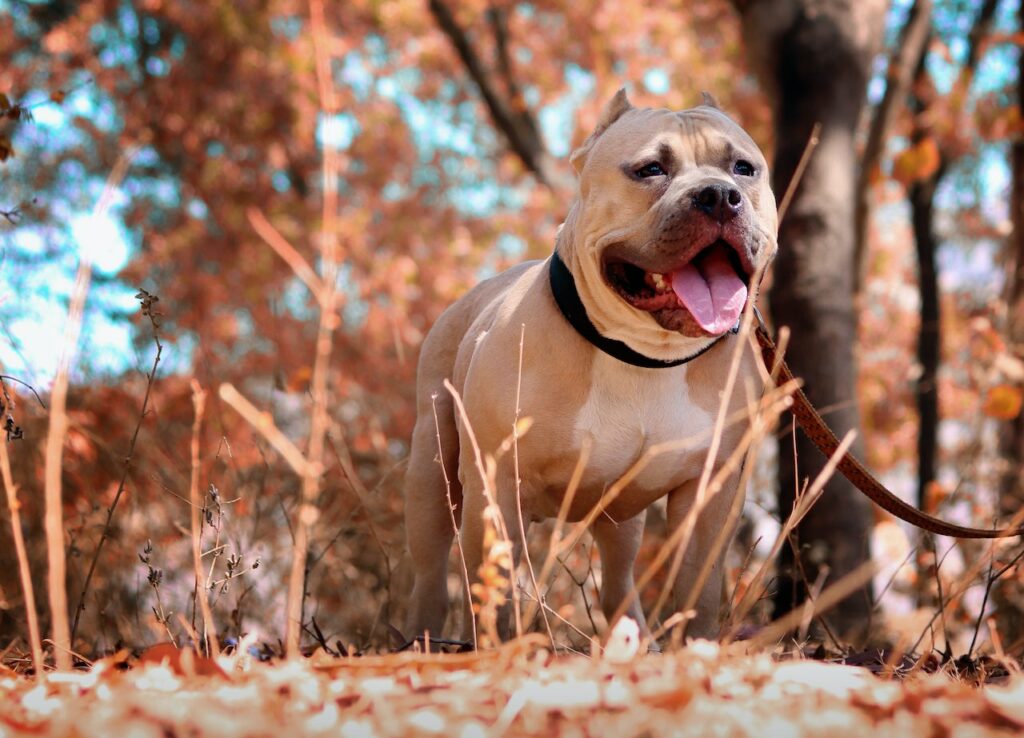Unlocking the Mystery of Pitbull Lock Jaw: What Causes it and How to Treat It
Are pit bulls known for their strong jaws? What happens when your pit bull’s jaw unexpectedly locks up? Pitbull lockjaw is a condition where pit bulls cannot open their jaws due to tightening muscles or tendons around the jaw joint. This article will discuss why pit bulls are prone to this condition, the signs that your dog may have a pitbull lock jaw and what treatments are available. If you own a pit bull or know someone who does, then you won’t want to miss out on this important information! So read on as we unlock the mystery of pitbull lock jaw and learn how best to treat it if needed.
The History of Pit Bull Lock Jaw
The term ‘lock jaw’ was first coined in the early 1900s when individuals started to selectively breed for greater strength and guarding capabilities in their dogs. This resulted in several physical changes, including a wider skull shape, more powerful muscles and heavier jaws. At that time, some pit bulls developed jaws that could clamp down on anything they bit onto and would not let go – hence the name ‘lock jaw’. Since then, however, selective breeding has been greatly reduced due to stricter laws by animal welfare organizations. As a result, lockjaw among pit bulls has become increasingly rare.
What Causes Pit Bull Lock Jaw?
Despite being relatively uncommon today, there are still cases where pit bulls will display signs of lockjaw. This phenomenon can be attributed to two main factors: genetics and environment. Regarding genetics, certain individual dogs may be predisposed to developing lockjaw due to their genetic makeup; however, this is extremely rare amongst modern-day pitbulls due to careful breeding practices, which have minimized this trait in the gene pool. On the other hand, environmental factors such as diet or excessive exercise can also contribute towards a dog exhibiting greater jaw strength than usual, even if they have not inherited any predisposition from their parents.
Misconceptions About Pit Bull Lock Jaw
As previously mentioned, misconceptions about pitbulls’ inherent lock-jaw ability still exist today –, particularly amongst those who do not understand much about canine behaviour or anatomy. It is important to note that although some may believe pitbulls can lock their jaws shut tighter than most other breeds, this simply isn’t true! In fact, according to scientific studies conducted over many years on various dog breeds, including Labrador Retrievers and German Shepherds – none were found to possess any special quality regarding their bite strength or locking mechanism compared with other breeds – including pit bulls!
Myths & Realities About Pit Bull Lock Jaw
There are numerous myths surrounding pit bull lock-jaw that need dispelling:
Myth 1: All Pit Bulls Have Lock-Jaw Ability – FALSE! This misconception has been thoroughly debunked both through scientific studies and observation alone – as it only applies rarely (if at all) among modern-day specimens of this breed!
Myth 2: A Pit Bulls Bite Force Is Stronger Than Other Breeds – FALSE! There is no difference between different breeds regarding bite force measured at PSI (pounds per square inch). While there may be differences between individuals within a particular breed depending on age/size, these differences are fairly minimal when considering them across different breeds altogether!
Myth 3: A Pit Bull’s Jaws Can Latch Onto Anything Once Biting Down – FALSE! Just like all other breeds – once a pit bull bites down on something, it cannot keep holding onto it indefinitely; eventually, it will need to release whatever item they’re biting for another one or break away completely before being able to re-grip again!
Benefits & Drawbacks Of Training A Pit Bull To Avoid Lock-Jaw Behavior
Training any dog takes patience and consistency – including those prone towards exhibiting lock-jaw behaviour, such as pit bulls! By properly training your pet, you can help prevent them from displaying any potentially dangerous behaviours, such as lunging/biting out of aggression or fear (which could lead them into potentially putting someone else at risk!). That being said – here are some benefits & drawbacks associated with training your pet against engaging in such reactions:
Benefits:
- Building trust between you & your pet will help strengthen your bond significantly over time.
- Improving overall obedience skills & responsiveness through positive reinforcement techniques like praise/treats.
- Reducing the possibility of injury to either yourself or someone else if aggressive/fearful behaviours arise unexpectedly
Drawbacks:
- Requires considerable patience/consistency on the part of the owner if training methods are done manually without assistance from a certified trainer
- A time-consuming process requires multiple sessions until desired results are achieved.
If you’re concerned about your pit bull exhibiting lock-jaw behaviour, it is important to take the necessary steps to ensure their safety and the safety of others. One thing you can do is make sure your pet is protected with adequate insurance coverage from Furrr.co.uk – that way, if any unexpected incident should arise due to this condition or any other health issue, you can be rest assured knowing that your furry family member will have access to the care and treatment they need! So don’t delay – get your pit bull insured today at Furrr.co.uk for complete peace of mind!










